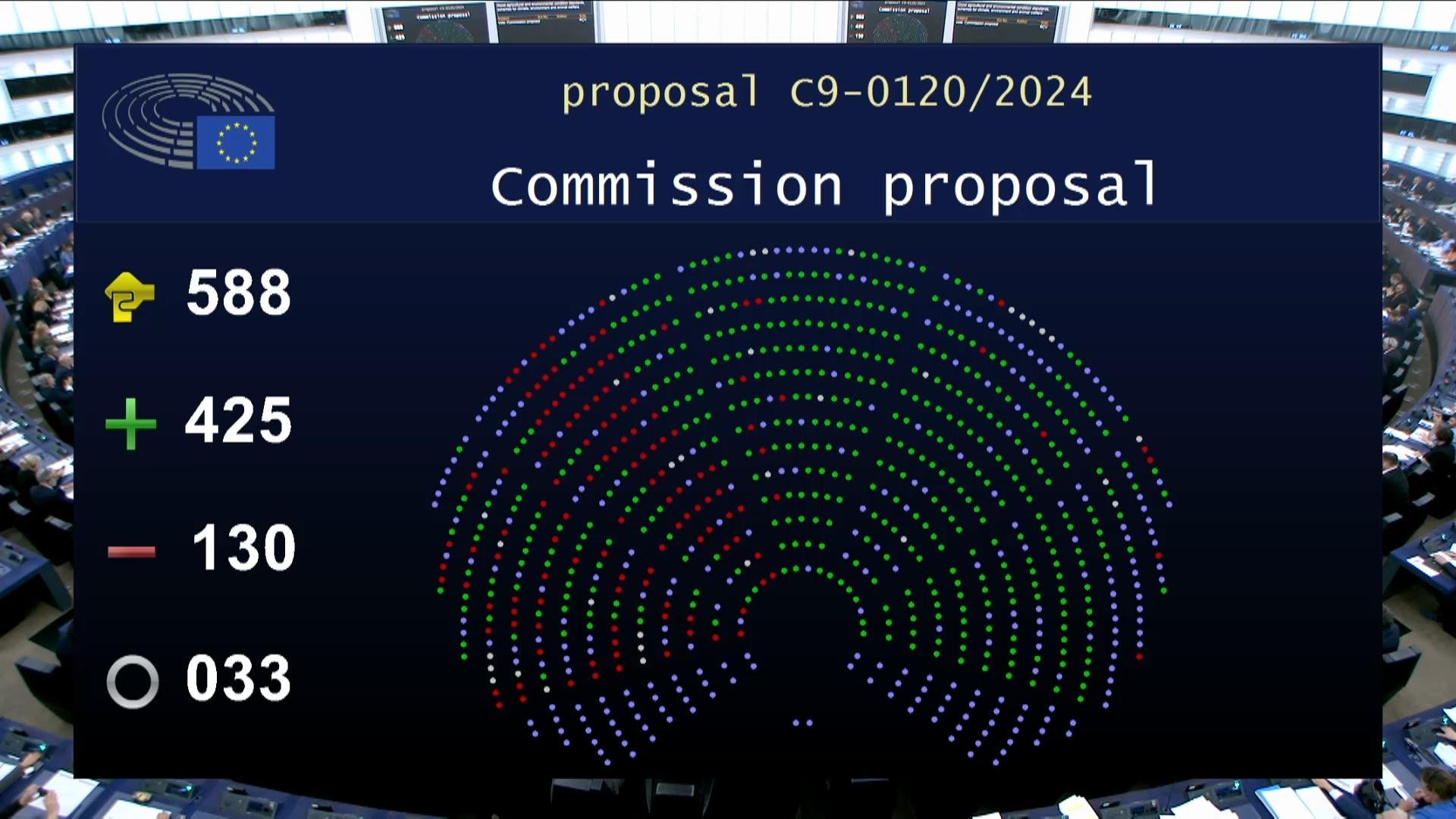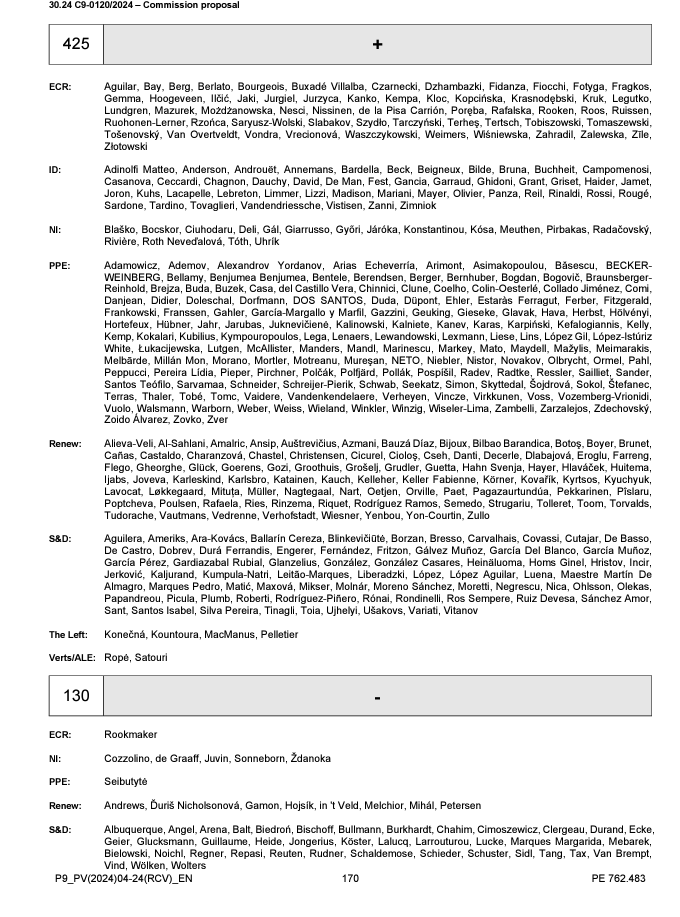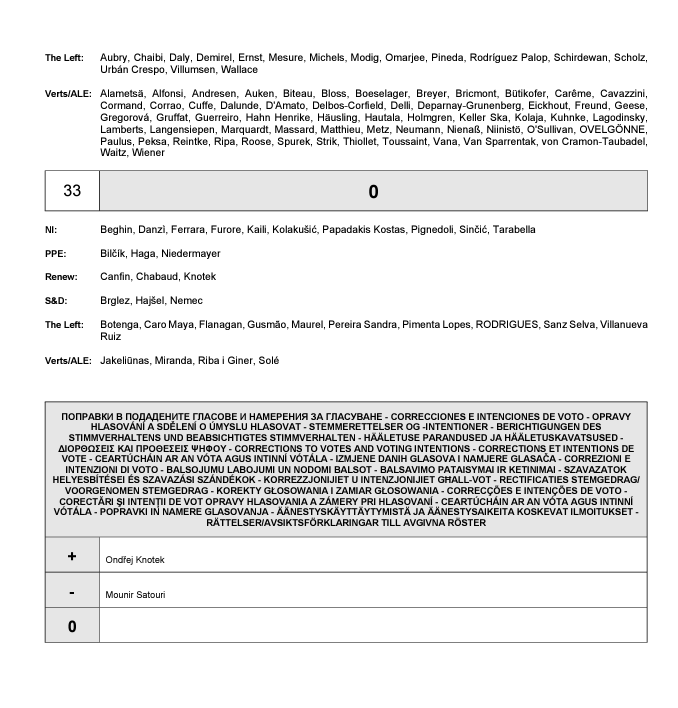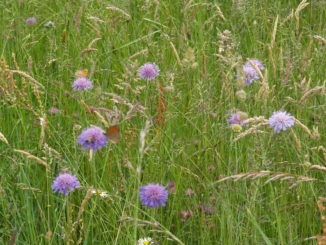
The European Parliament has officially backed plans to fast-track changes to the EU’s farming subsidy programme which dismantles its environmental requirements in the process. However civil society is not ready to let the decision go down without a fight, with lawyers gearing up to challenge the move. Natasha Foote reports.
The package won the backing of the majority of MEPs in a vote in Strasbourg on Wednesday (24 April), during the last plenary session of this political cycle – despite pushback from left-wing lawmakers including the Greens and some socialists.
The plan aims to lighten the administrative load on farmers as a response to the continuing protests against what is seen by protestors as excessive regulation, unfair pricing and trade competition.

While the protests have only partially been about environmental regulations, it’s this area which has seen the swiftest action. A big part of this is the proposed downgrading of mandatory environmental requirements in the Common Agricultural Policy (CAP) to voluntary, as well as more power shifted into the hands of member states.
These are five of the nine CAP conditionality rules, the GAECs (Good Agricultural and Environmental Condition) and a small farmer (under 10 ha) exemption from checks.
The move has been welcomed by one half of the farmers’ groups consulted – EU farmers’ association COPA-COGECA and young farmers’ association CEJA. But it has been lambasted by small farmers’ association European Coordination Via Campesina and organic association IFOAM EU, both of which consider their voices have not been heard in the consultation process.
Here are all the votes – see how your MEP voted on all the CAP simplification elements from 124-171
(Fuller analysis below)
Parliament Pushes Full Steam Ahead to Dismantle CAP’s Green Rules
Act in haste, repent at leisure?
The speed with which the policy has been dismantled has thrown up questions of legitimacy and legality among campaigners, who were quick to label the decision “unlawful”. The current CAP took the better part of 4 years to negotiate but has been dismantled in a little over 4 weeks, without so much as a debate among MEPs.
The failure of the Commission to provide an impact assessment prior to its proposal prompted the Parliament to consult its legal service for an assessment of the process, which concluded that the move was, at least for the most part, legally kosher.
But legal environmental NGO ClientEarth has since challenged this, calling the legal opinion a “startling interpretation which casts doubt on the objectivity and impartiality of the Parliament’s lawyers”.
For the legal group, the failure of the Commission to conduct a climate assessment “automatically puts the proposal in breach of EU law”.
“What’s outrageous from a legal perspective is the blatant incompatibility of the revision with the CAP’s own rules, as well as other EU laws – like the European Climate Law,” ClientEarth lawyer Sarah Martin said.
As a civil society organisation, ClientEarth is unable to challenge the CAP’s revision directly. But it plans to bring a complaint to the EU Ombudsman, asking it to “call the European Commission out on failing to respect peoples’ rights to information and to participate in the decision-making process when preparing the proposal”.
Meanwhile, ecologist and CAP specialist Guy Pe’er lambasted this “cascade of poor decisions based on misinformation or even disinformation”, which, has “no justification”: “in fact, the Commission itself published data proving the opposite.”
He goes on ‘when agrifood systems are approaching a collapse, this is exceptionally stupid and irresponsible. From a science perspective, I believe there is a strong case here for court against this decision based on two issues: first on the basis of the precautionary principle, and second, based on the Commission’s own assessment showing this to be the wrong action to solve the wrong problems. ”
The ecologist emphasised that there has not yet been an adequate assessment of previous exemptions to the environmental measures in the CAP. The Commission previously granted exemptions to some of the environmental requirements in both 2022 and 2023.
“There is no impact assessment, no proof of justification – it makes no sense to use,” he told ARC, stressing that the decision actually enhances the risk of food security hazards.
Civil society organisations have also previously called on the EU court of auditors to step in and assess the decision making process, who told ARC it is “likely” that the legislative changes proposed now will be “to some extent included in the special report we are currently working on”. Publication is currently pencilled for this summer.
Meanwhile Pe’er is ”happy to support with evidence if anyone takes them to court on this”.
(For ARC’s own analysis of this legal advice, see article below.)
Confidential Legal Advice on CAP Fast Track Uncovered – Critique of a Meek Opinion
What next?
With its vote, the European Parliament aligned its position with that of the other lawmaker, the Council.
This means that the plan can skip the usual process of interinstitutional negotiations between the lawmakers, and instead be fast-tracked for adoption.
All that is left now is a greenlight from the Council – a formality at this point, given that the Belgians, who currently hold the reins of the EU rotating presidency, already confirmed that if MEPs matched the Council’s position, it would be greenlit.
According to an EU diplomat, this is most likely to happen mid-May, most likely during a meeting of the Council on Education, Culture, Youth and Sports on 13 May.
Following the approval by the Council, the law will be published in the EU Official Journal and enter immediately into force. Farmers will then technically be allowed to apply revised environmental “conditionalities” for their claims for EU financial support in 2024.
More
Confidential Legal Advice on CAP Fast Track Uncovered – what’s in it?
EU’s Nature Restoration Law at Critical Juncture after Pushback by Member States







